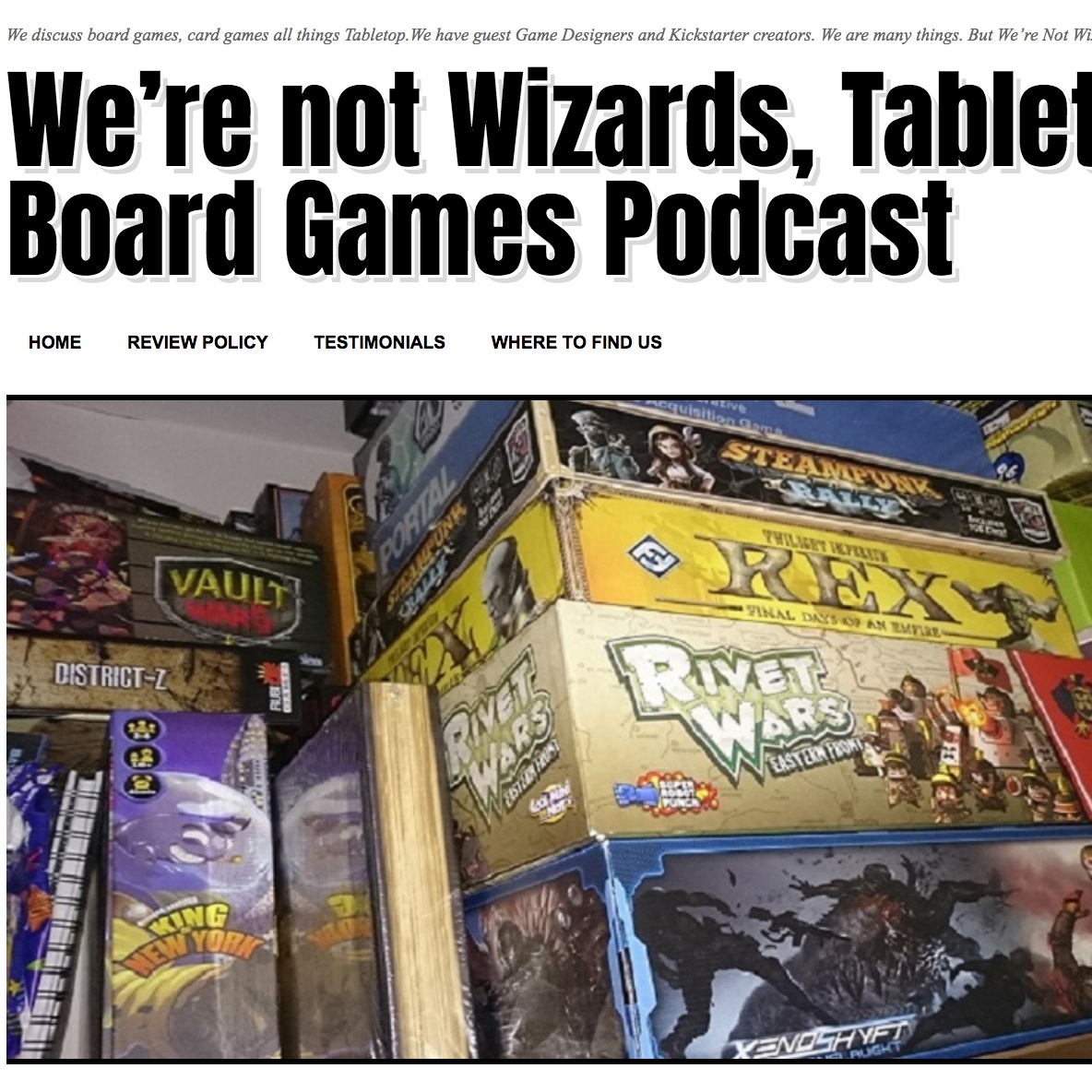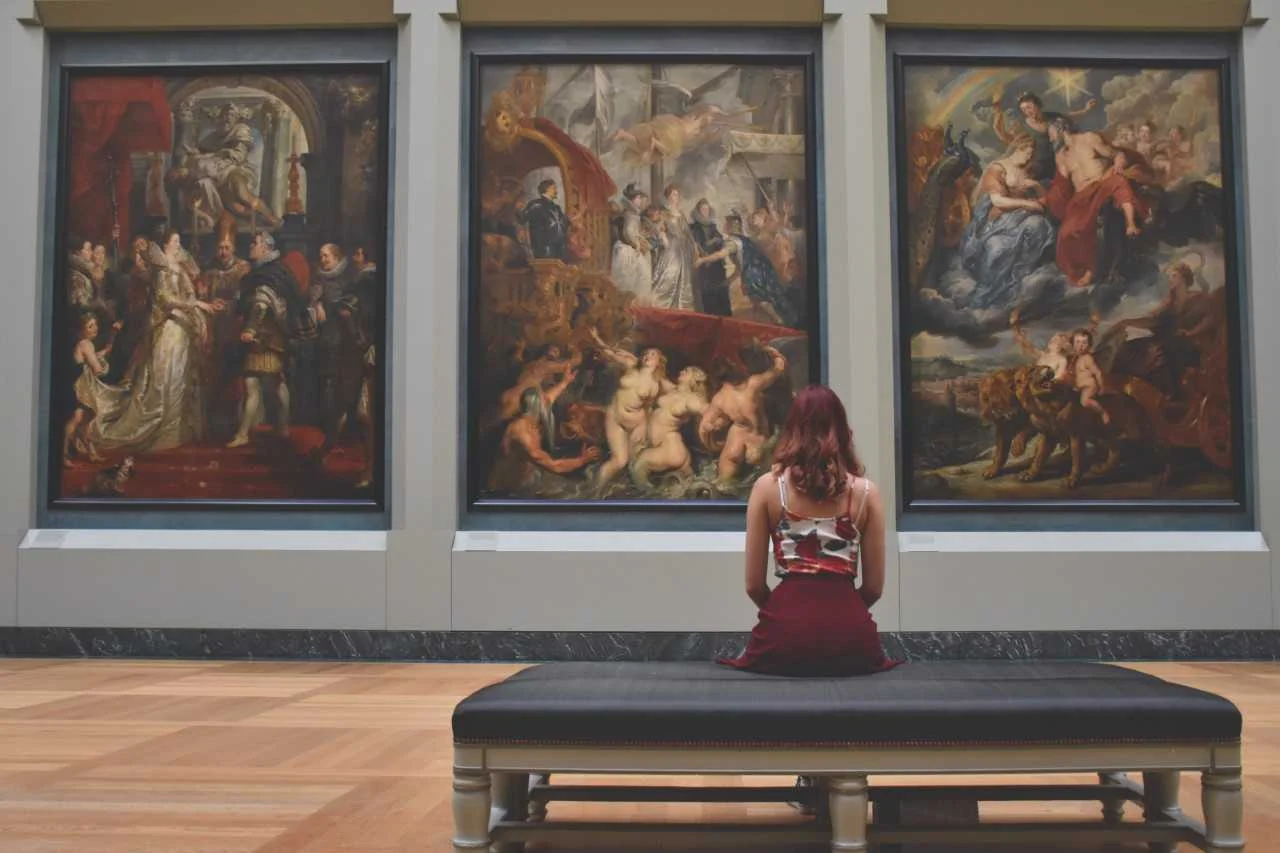Sam Illingworth talks to the We’re Not Wizards podcast about how games can be used to develop dialogue around climate change and sustainability with diverse audiences.
Read MoreThis book does exactly what its title suggests: it’s an encyclopedia of game mechanisms, but it’s also rather more than that – it’s an engaging read that’s packed with insightful comment and an invigorating invitation to think about the future directions of tabletop gaming.
Read MoreA new research paper argues that games offer an immersive opportunity for environmental science communication.
Read MoreHARTS & Minds are looking for articles, reviews, and creative pieces for a special edition on interactivity set for publication in 2020.
Read MoreRegistration for this year's International Games Week (2nd-9th November) is now open. The initiative is open to all libraries regardless of the sector - to sign up they just need to be hosting a games event during or around the week of 2nd to 9th November
Read MoreIn this book, Darshana Jayemanne presents a central thesis that videogames as performances are messy and that they lack a homogeneity that lends itself to linear analysis.
Read MoreIn this extended read, Dr Paul Booth presents the findings of a survey of board gamers to find out who played hobby games, what types of games people played, and how people played games together.
Read MoreThe San Jenaro Co-Op is a loose affiliation of independent games developers, writers, illustrators, editors and designers. This interview explores their values, their output, and how they’re changing indie games design.
Read MoreA podcast episode, featuring members of the MGSN talking about their work and research into games and gaming. From gambling and the gothic to AI and LARPs.
Read MoreIn their latest book, Video Games Have Always Been Queer, Bonnie Ruberg lays out the case for the fabric of play and gaming being essentially queer. That title is, as internet speak suggests, something of a BIG MOOD and can serve as a rallying cry and a reminder: video games have always been queer.
Read MoreIn this edition of Games Lab, Dr Stephen Curtis examines the ways in which the Bard and his works have been used as the inspiration or setting for games, both card/board and digital. As well as a brief summary of the general state of Shakespearean games, Stephen discusses what the process of ‘gaming’ Shakespeare can offer to critical discussions of the plays and poems that make up his work.
Read MoreIn this edition of Games Lab we were joined by Dr Jennifer Cromwell, who explores the extent to which 2017’s Assassin’s Creed Origins manages to unite the worlds of gaming, digital humanities, and Egyptology.
Read MoreMarx at the Arcade, like Luigi in his haunted mansion, clears out the cobwebs and names the spectre haunting gaming. Woodcock’s text ties together several, hitherto disparate, branches of research and commentary into and of gaming. The text brings together modern labour movements, games criticism, and history under the umbrella of Marxist analysis.
Read MoreAbsent Presences is a Gothic conference taking place at Manchester Metropolitan University on the 27-28th of June. The event wishes to shed light on the neglected aspects of Gothic studies, from representation of marginalised groups both in text and in authorship, to under-explored media types such as new media and online video.
Read MoreTransgressions in games are multifaceted, with boundaries that shift depending on the player and the game. Transgression in Games and Play edited by Kristine Jørgensen and Faltin Karlsen recognises this nature of games and play to offer a truly compelling anthology.
Read MoreSubmissions are invited for the online journal EAI Endorsed Transactions on Serious Games. The journal offers a very broad platform for publishing scholarly articles on all aspect of serious gaming (see list below) and the Editorial Board is equally keen to hear from academics who can contribute to the reviewing process within any of these thematic areas.
Read MoreMy title is a provocation: at one level, Dungeons and Dragons is a game, a role-playing game with numerous rules and supplements. At several other levels, D&D is much more than a game. I’m not interested here whether role-playing games are actually games in the same way as other games or in the definition of games, which, as Wittgenstein demonstrated in his Philosophical Investigations, are actually very difficult to define, given the variety of objects and practices that are referred to as games. Nor do I want to discuss here the social practice that is playing D&D (fascinating though this is). Instead, what I’m interested in here is the way in which cultural objects expand beyond their original medium into other media, and how that process affects how we approach the original text, often decentring them.
Read MoreIn this edition of Games Lab we were joined by Dr Laura Mitchell, who outlined the appeal games have for business, particularly in the context of increasing motivation and productivity through affective experience.
Read MoreWe’ve never lived in a better worse moment for politics in gaming. Worse in the sense that mass layoffs, union busting, and the leftover gg trash pockmark the landscape like a bad skincare routine, and best in that now is the moment where taking a stand is starting to show its payoff. Game Workers Unite is gaining steam, Queer indie devs and Queer Game Studies are making bigger impacts on the industry and academia, and theorizing the politics of games is a scaffolding taking the shape of a space in which we can all find room. Coeval to this dialectical change is Liam Mitchell’s Ludopolitics: Videogames Against Control published in 2018 by Zero Books.
Read More


















